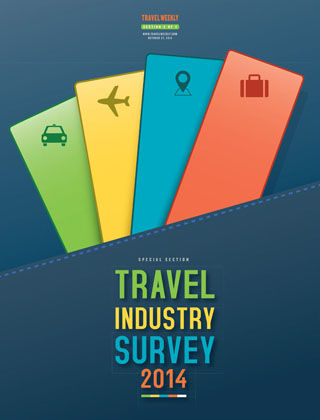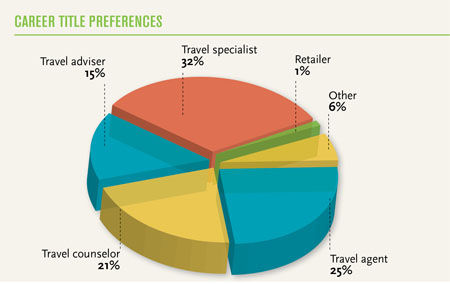 A little more than nine years ago, I wrote a column asking Travel Weekly's audience to help redefine what the world calls people who sell retail travel. Even then, the convergence and blurring of the offline and online worlds made "traditional travel agent" or "brick-and-mortar agency" or even "online travel agency" inaccurate, polarizing and somewhat meaningless.
A little more than nine years ago, I wrote a column asking Travel Weekly's audience to help redefine what the world calls people who sell retail travel. Even then, the convergence and blurring of the offline and online worlds made "traditional travel agent" or "brick-and-mortar agency" or even "online travel agency" inaccurate, polarizing and somewhat meaningless.
I didn't see a lot of potential in any of the responses. None was concise enough.
Since then, sellers of travel have increasingly wanted to distance themselves from the descriptor "travel agent." Everyone from President Obama to Tina Fey has used it as an example of a career made obsolete by the Web. Regardless of their accuracy, it's nonetheless a drag to have to begin each discussion with a potential new client by saying, "No, I actually do exist!"
So agents began calling themselves by other names, most notably "travel adviser," "travel counselor" and "travel specialist."
There has been some question about whether there's also a need to differentiate sellers of travel who work from a home office. Increasingly, there appears to be a consensus that where an agent works is of minor importance, though as our Travel Industry Survey research reported in the following pages shows, there are some differences between what home-based retailers sell and the product mix of office-based retailers. (Click here or on the image to continue reading the report.)
We're now adding our findings on the question of what agents want to call themselves to previous surveys by ASTA and the Outside Sales Support Network.
 I find myself increasingly using the phrase "travel retailer" in my own reporting; it's a relatively clinical, descriptive term that encompasses the entire indirect travel sales channel. I'm not surprised that only 1% would embrace this as their term of choice.
I find myself increasingly using the phrase "travel retailer" in my own reporting; it's a relatively clinical, descriptive term that encompasses the entire indirect travel sales channel. I'm not surprised that only 1% would embrace this as their term of choice.
The split between preference for "travel specialist" and "travel counselor" or "travel adviser" is a meaningful and important distinction for consumers. Common wisdom holds that for a small retailer, becoming a specialist is a smart move, but clearly not everyone wants to restrict themselves to a specific niche or specialty. The terms "counselor" and "adviser," selected by 21% and 15% of respondents respectively, put the emphasis on professionalism and imply objectivity and client advocacy over product specialization.
What to make of the 25% who still prefer the term "travel agent" to any other? What attributes do they believe the phrase signifies that outweigh the benefits of appearing to be a specialist or providing "professional" guidance?
For some, it's no doubt inertia. I've heard others argue that they want to make clear, for legal reasons, that they are an "agent" of suppliers.
And I believe there are those for whom the term "travel agent" reflects the best attributes mentioned above. They survived because they possess specialized knowledge, conduct business professionally and deliver for their clients. Nothing has changed for them, so why should they relabel?
Email Arnie Weissmann at aweissmann@travelweekly.com and follow him on Twitter.